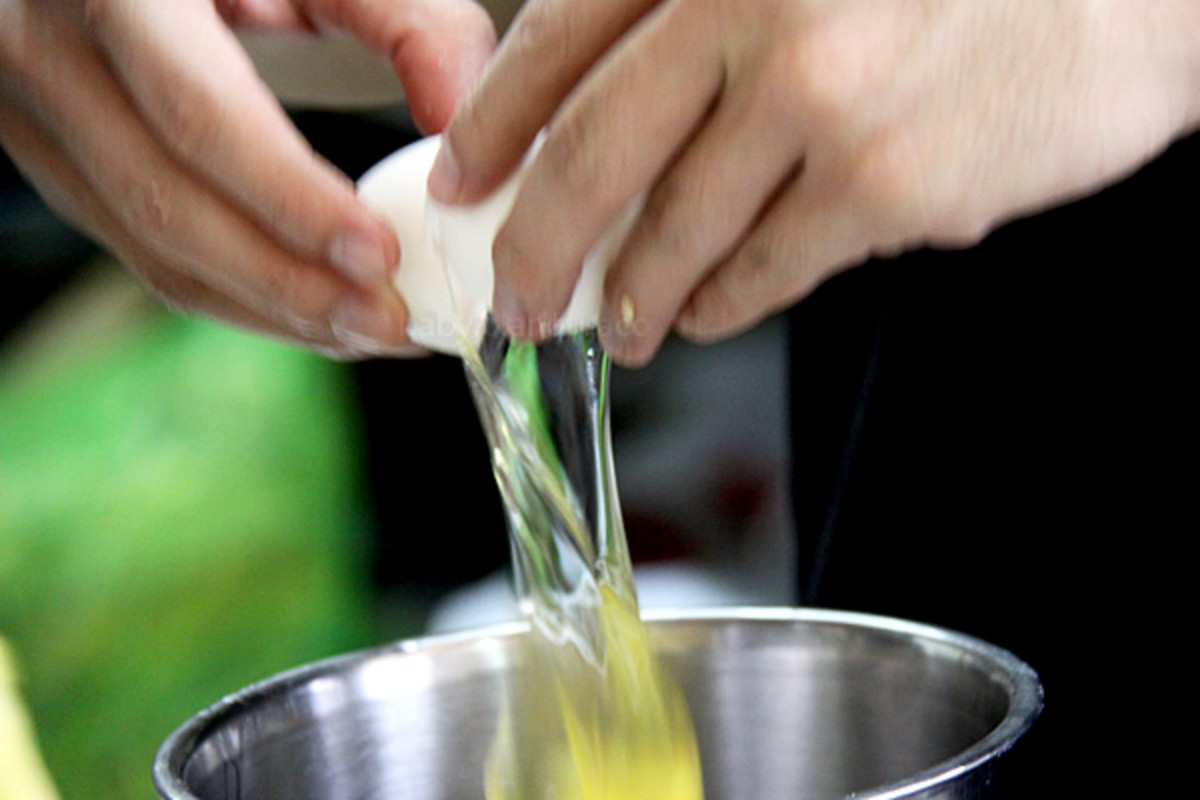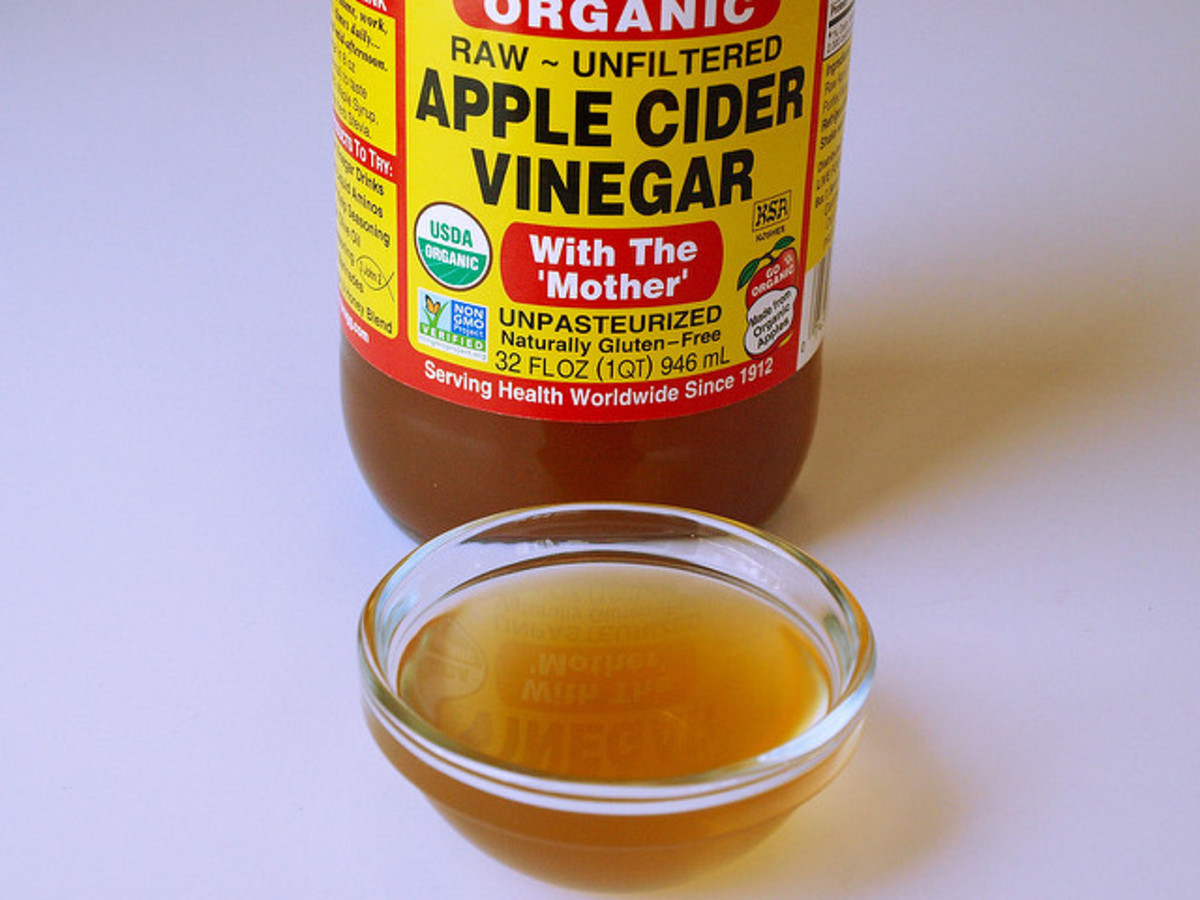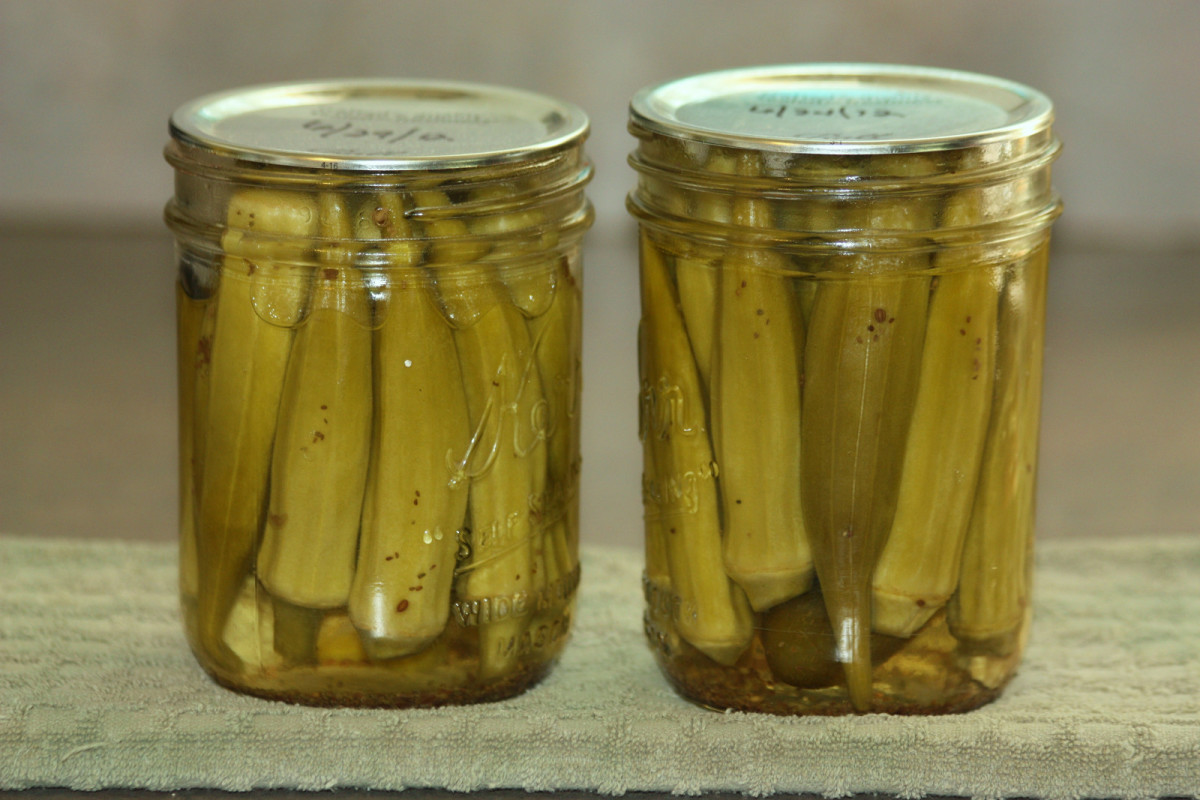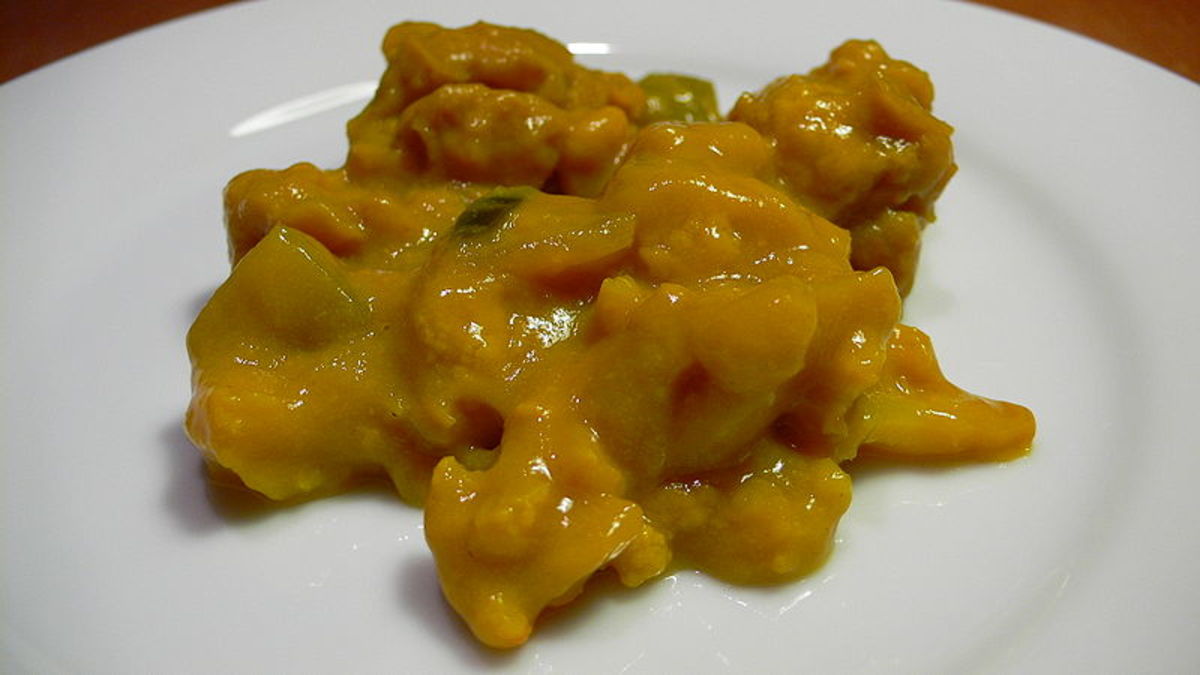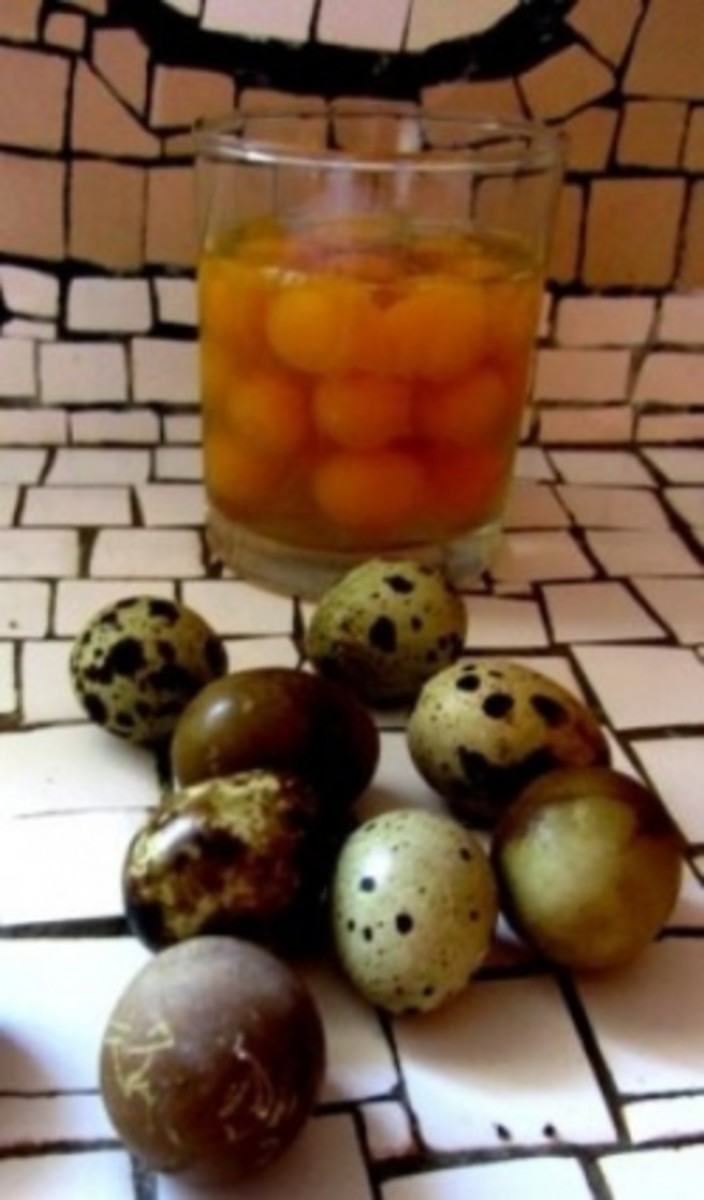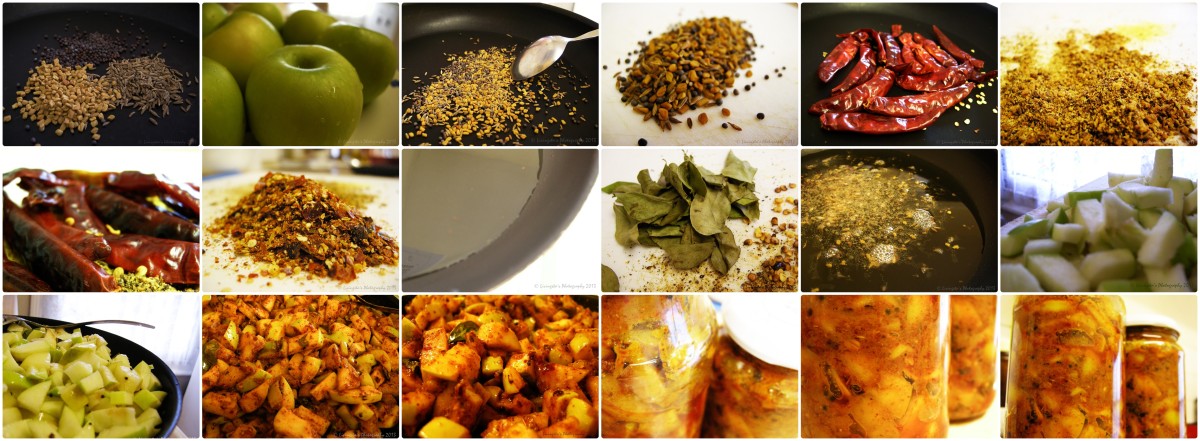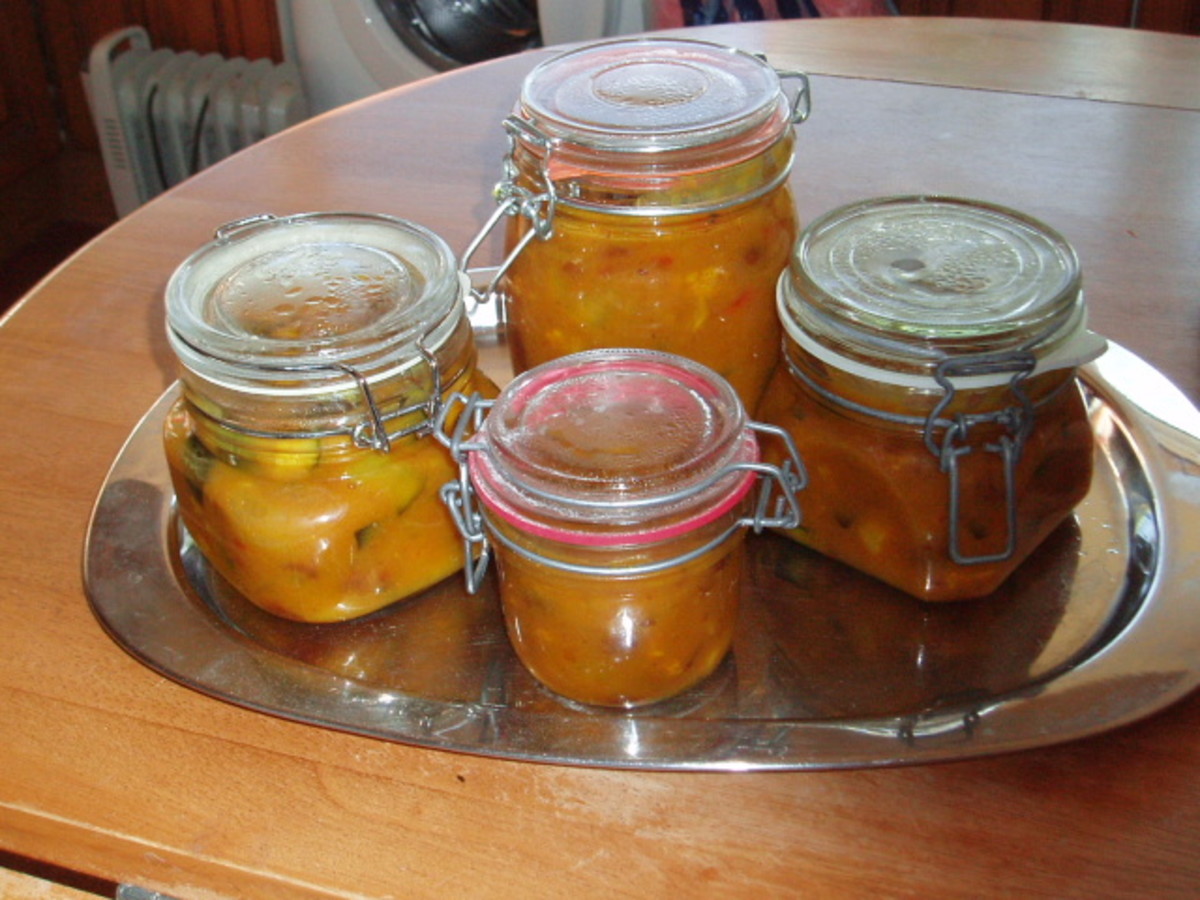How to Make a Pickling Liquid for Hard Boiled Eggs
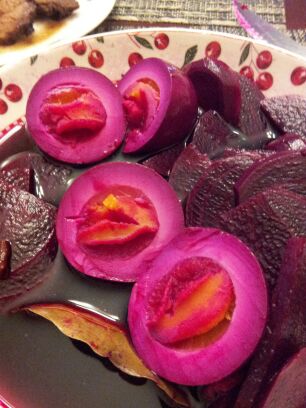
Pickled eggs are hard-boiled eggs that have marinated in a pickling brine for at least a few days or sometimes as long as two weeks. The Internet has dozens of pickled egg recipes, everything from curried eggs to beet pickle eggs to hickory smoked eggs. However, with a few guidelines, you can step outside the recipes and improvise your own unique twist on the pickled egg theme. You can decide how you want to serve your eggs and tailor the flavor to go with the other foods you plan to serve with your eggs.
Boil some eggs
Pickled eggs start with hard-boiled eggs. To hard boil eggs place eggs into a saucepan. Choose a heavy weight saucepan with a tight lid. Cover the eggs completely with cool water. Bring the water to a boil over medium-high heat. When the water is boiling, turn off the heat and cover the pan. Let the eggs sit for 15 to 20 minutes (15 for medium eggs, 20 for extra large). When the eggs are done, pour off the water and replace it with cold water. Put a colander in the sink to catch the bits of shell, and peel the eggs under a trickle of cold water.
Start with vinegar
For a dozen eggs you will want at least a cup of white or apple cider vinegar. If you like your eggs extra sour, you can use as much as 1 1/2 cups. Measure it into a saucepan.
Avoid using homemade vinegar, or other specialty vinegars for the base of your pickling liquid. The advantage of using commercial white or apple cider vinegar is its predictable acidity. Acidity is what is going to make your eggs pickle instead of spoil. If you want to try using malt vinegar, balsamic vinegar, or a flavored vinegar, treat them like seasonings and add them to white vinegar.
Add liquid
Vinegar alone is a little strong for pickling eggs. You can add water at a 50:50 ratio to the vinegar. Or you can use fruit juice. Apple cider and pineapple juice work well, but you can experiment. If you like your eggs sour, use less liquid. If you like them mild, add a less sour liquid, but don't dilute the vinegar to less than 50:50.
Add a sweetener
If you like your eggs a bit sweet, you can add sugar or some other sweetener. Sugar or brown sugar is typical, or you can use honey or maple syrup. Usually a teaspoon or two will be enough. If you are using fruit juice as your liquid, you may not need to sweeten the eggs further. If you want to emphasize the vinegar in the recipe, skip the sweetener.
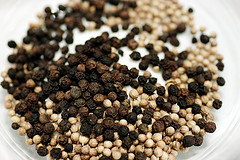
Add spices
Dill and mustard seed will give you dilled eggs. Liquid smoke and pickling spices will give you hickory smoked eggs. Mustard, turmeric, cardamom pods and curry powder will give you curried eggs. Experiment with spice combinations from some of your favorite recipes.
Add vegetables
Some people like to add sliced raw onions, garlic, hot peppers or bell peppers to their eggs. They will give the eggs additional flavor and can be eaten as pickles in their own right.
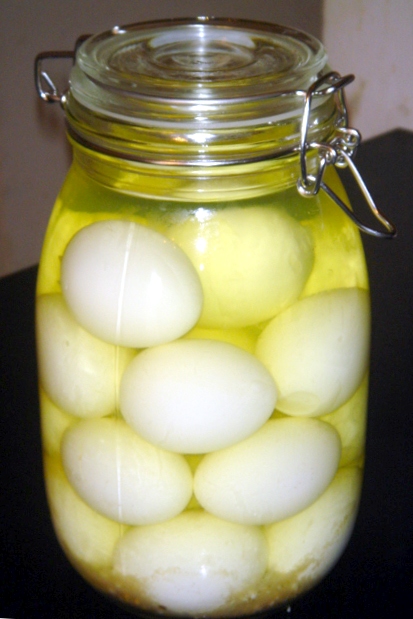
How to assemble the eggs
- Chop the vegetables into bite-size pieces or smaller. The smaller the pieces, the more surface area the vegetables will have. The more surface area they have, the more they will infuse their flavor into the vinegar and the more they will absorb the flavors from the vinegar.
- Pack the vegetables and the eggs into a jar. A quart-size canning jar will usually fit a dozen eggs. Make sure the jar you choose has a tight lid.
- Heat the vinegar, liquid and spices to boiling. Boil until the sugar is completely melted. Pour this pickling liquid over the eggs and vegetables. Let your pickles marinate from five days to two weeks.
How to experiment
Beet pickled eggs, dill eggs and curried eggs are quite common. But with a bit of experimentation, you can come up with your own unique pickled egg recipe. Look at other recipes, not just pickled egg recipes, for inspiration. Pickle recipes of all kinds can be used to pickle eggs. But even marinade recipes, barbecue recipes or ethnic food recipes can be sources of herb and spice combinations that might or might not work for pickled eggs. If you want to experiment without sacrificing a dozen eggs, pack four eggs into a pint jar, and cut the pickling liquid back to three-quarters what you would use for a quart. Just make sure that you don't decrease the vinegar to less than half of the total liquid. If you are willing to play a little (and fail a little) you might find a gem recipe that you'll want to make over and over again.
Food safety
Eggs, especially eggs that have been sitting for a while, can harbor food borne pathogens that can make you sick. A few precautions will keep you safe.
Always let your eggs marinate in the refrigerator. Never leave them on the counter. Even if your pickled egg jar "seals," pickled eggs are not shelf stable, and should not be treated like canned food. Keep them in the refrigerator and don't make more than you can eat in three months.
Vinegar is part of what makes pickled eggs keep for weeks. If you use less than a 50:50 ratio of vinegar to water, your eggs can spoil before they pickle. If you are using an acidic fruit juice, you can use as much as 3:1 liquid to vinegar, but you should never skimp on the vinegar. If you have any doubts about whether you are using enough vinegar to liquid, start with the proportions in a reputable pickled egg recipe. The National Center for Home Food Preservation has several recipes that they have tested and found to be safe.
Rate this Recipe
Learn More
- National Center for Home Food Preservation: Pickled Eggs
Here are some tested recipes that can give you a safe way to start experimenting. - Food Network: Pickled Eggs and Beets
- Simply Recipes: Pickled Eggs
- Washington State University Whatcom County Extension: Pickled Eggs

